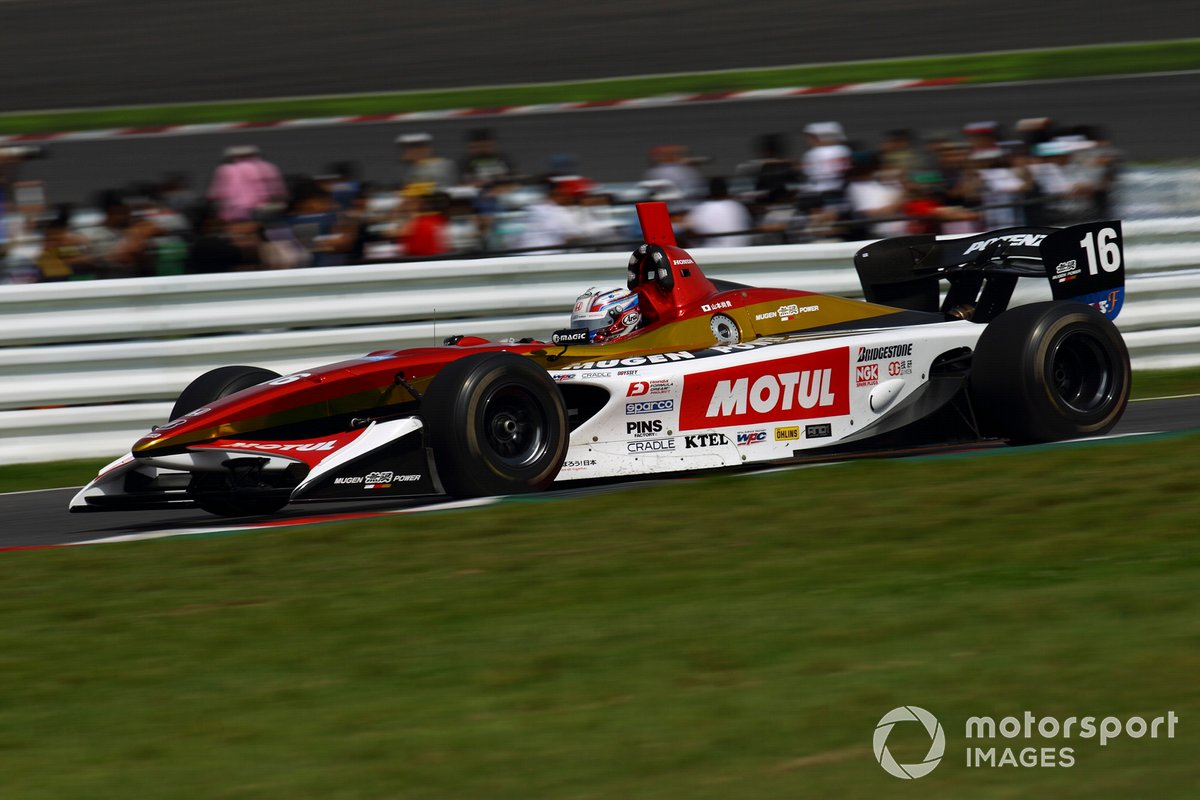
In late 2011, van der Zande was at a career crossroads. After a bruising first season in the DTM in an old-spec Mercedes, it wasn’t clear whether there would be space for him the following year. But an unexpected treat came his way in the form of a chance to try his hand in one of the world’s fastest single-seaters.
The invitation to join the post-season rookie test at Fuji Speedway of what was then known as Formula Nippon came from Team Mugen, which was then a one-car outfit. Dissatisfied with its results in 2011 with Naoki Yamamoto, the team was keen to get some feedback from another driver and van der Zande was recommended to the team by Mugen’s European arm.
- Watch all Super Formula races live on Motorsport.tv (available worldwide except Japan). Click here for more information.
“I was trying to line up a drive for 2012, but Mercedes kept dragging its heels and it wasn’t until February that they finally dropped me,” van der Zande told Motorsport.com. “But they let me test for Mugen in Formula Nippon in November in the official post-season test.
“It came about because of my season in British F3 [in 2009], when I was racing against guys like [Daniel] Ricciardo, [Max] Chilton, those kind of guys. I was super-strong that season with Hitech, and that’s what they remembered.”
Yamamoto, then only in his second season and 11th in that year’s standings, drove the #16 Mugen machine on the opening day of the test before van der Zande took over on the second day. But he couldn’t get close to Yamamoto’s benchmark of 1m24.491s, ending up on a best time of 1m26.020s, leaving him 14th on the day’s timesheets.

Looking back on the test, van der Zande admits that he couldn’t get a firm handle on how to drive the Swift-built FN09 through the high-speed corners in the same way that future champion Yamamoto was able to.
“[Yamamoto] was super-nice, we looked at the data together to see how I could get up and running, but he was way faster than I was!” admits van der Zande. “He wasn’t well-known at that point, but after that he won a lot of championships and became a Japanese superstar.
“The car was super impressive, and especially around the 100R… I remember going around there, thinking I was at the limit, and I came back and looked at the data and I saw that there was another 15km/h to gain!
“The car behaved exactly the same in the low-speed and high-speed corners, so it was a weird car to drive in the high-speed corners. But it was so unbelievably fast in the fast corners, which was a nice experience coming from DTM. I really enjoyed it, those cars at the time were as fast as the last few cars on the F1 grid.”

Unfortunately, Van der Zande’s test wouldn’t lead to any further outings with the team, as Mugen was unable to expand to a second car due to financial constraints and ultimately kept its faith in Yamamoto - a decision that paid off in the long run with titles in 2013 and 2018.
After being dropped by Mercedes, van der Zande faced a spell on the sidelines, with his only races in 2012 being a pair of Porsche Supercup appearances and a one-off at Spa with the Kolles-run Lotus LMP2 team in the nascent FIA World Endurance Championship. It was the following season that his long love affair - which continues to this day - with IMSA began.
“My career basically stopped in 2012, so I started my insurance business for race cars,” recalls van der Zande. “But then In 2013 I was invited to go to Laguna Seca for the LMPC class in IMSA [driving for DragonSpeed], and I ended up staying there ever since.”
Next weekend, as he makes a one-off return to the WEC at Fuji with the Vector Sport LMP2 team, van der Zande will finally have the chance to race at the track where he was awed by his Super Formula experience 11 years ago.








